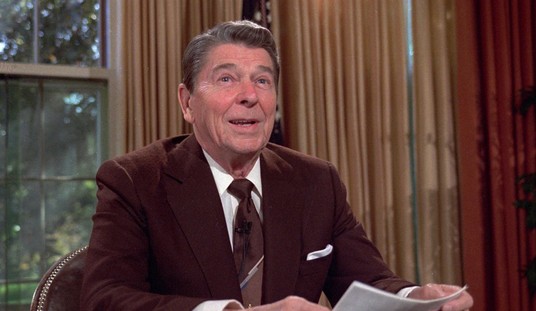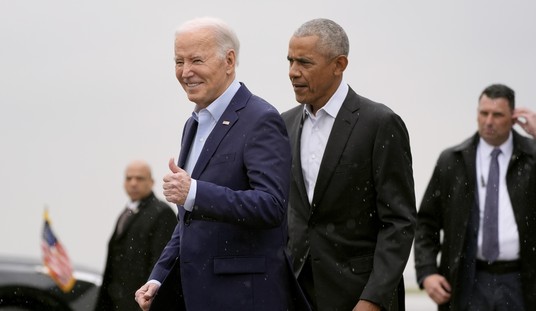Scratch any communist country — or communist party — and you will find aristocracy. Nicholas Eberstadt, writing in the Washington Post explains how “Pyongyang Royalty” works. There is a ruling house in North Korea and indeed one reason why the regime was stable for so long, Eberstadt argues, is because its Royals observed an unwritten rule never to execute each other. It is a rule that Emperor Kim Yong-un has just broken.
Elsewhere in the communist world, the highest tiers always enjoyed physical comforts. But the tumultuous, cut-throat nature of communist politics meant that their physical fate, up to and including cause of death, remained perilously contingent. (As the Bo Xilai affair in China underscores, this is still the case under “reform socialism.”) By contrast, North Korea’s “Great Leader” Kim Il Sung laid down a system of dynastic succession that protected not only the revolutionary royals but also those aristocrats closest to them. …
This spectacle of public humiliation — and liquidation — of a royal marks a radical departure from business as usual. The North Korean state has its internal code of honor, and its paramount precept had always been that The Royals Stay Safe. But no longer can a regent and adviser in chief like Jang expect to be pensioned off to some posh inconsequential place once his services are no longer needed. Palace politics have suddenly become life-and-death.
The fact they wouldn’t kill members of the Ruling House made leadership struggles a safer affair thereby opening the door to negotiated outcomes. That contributed to stability. But the death of Grand Moff Jang Song Thaek means that North Korean politics has now become a zero sum game. That doesn’t particularly worry Eberstadt who has no affection for the Kims. But he is troubled by the possibility that these wackos will start behaving irrationally internationally. Those wackos have a nuclear bomb that is their primary bargaining chip when extorting money from the United States.
North Korea occupies a high-tension, high-stakes niche in the international system wherein there is precious little margin for error. It is incalculably dangerous to have a decider prone to miscalculations running the show. But in the regime’s next crisis, who is going to counsel the Dear And Respected Leader that his preferred option is a dumb idea? Not Uncle Jang.
But the Kims are not alone. The other notable royal house is the Castro dynasty, whose crown prince Barack Obama met at the Nelson Mandela funeral, itself a cavalcade of princes. The words of Barbara Tuchman describing the funeral of Edward VII a hundred years ago come almost unbidden to mind.
So gorgeous was the spectacle on the May morning of 1910 when nine kings rode in the funeral of Edward VII of England that the crowd, waiting in hushed and black-clad awe, could not keep back gasps of admiration. In scarlet and blue and green and purple, three by three the sovereigns rode through the palace gates, with plumed helmets, gold braid, crimson sashes, and jeweled orders flashing in the sun. After them came five heirs apparent, forty more imperial or royal highnesses, seven queens–four dowager and three regnant–and a scattering of special ambassadors from uncrowned countries. Together they represented seventy nations in the greatest assemblage of royalty and rank ever gathered in one place and, of its kind, the last. The muffled tongue of Big Ben tolled nine by the clock as the cortege left the palace, but on history’s clock it was sunset, and the sun of the old world was setting in a dying blaze of splendor never to be seen again.
Update that, subtract the fake sign language interpreter and that was the Mandela funeral.
Royalty is back, and with it, the madness that has haunted the governance by kings. Adam Cathcart at the Atlantic was struck by the peculiar language in which royal communist discourse is conducted. The KCNA issued one of those stylized, show-trial screeds on the occasion of the execution which described how Jang Song Thaek manifested his guilt and ill-will by “half-heartedly” clapping for Kim Jong-un.
When his cunning move proved futile and the decision that Kim Jong Un was elected vice-chairman of the Central Military Commission of the Workers’ Party of Korea at the Third Conference of the WPK in reflection of the unanimous will of all party members, service personnel and people was proclaimed, making all participants break into enthusiastic cheers that shook the conference hall, he behaved so arrogantly and insolently as unwillingly standing up from his seat and half-heartedly clapping, touching off towering resentment of our service personnel and people.
Lèse-majesté is a crime in communist countries because they are absolute monarchies; because contrary to their claims of atheism, hard-core leftism just substitutes a god on earth for a God on High. Indeed the name given to the PR program of leftist rulers is the “cult of personality”. Personality provides the only glue for a dysfunctional state, which if it cannot attain to legitimacy by achievement, can at any rate obtain it by humbug. What you have instead of patriotism in a progressive regime is loyalty. The reason Soviet audiences clapped so long and loud for Stalin, according to Solzhenitsyn, was the rumor that the first man to stop clapping would be imprisoned.
And hence the peculiar and courtly mode of speech. Jose Maria Sison, the head of the Philippine Communist party, who lives in Europe under the protection of the Left, has mastered this completely artificial literary form. In message replete with titles, including the royal ‘we’ and stock phrases, Sison recently made obeisance to young Kim in a style which would make courtiers of the past proud.
MESSAGE OF INTERNATIONAL LEAGUE OF PEOPLES’ STRUGGLE
TO COMRADE KIM JONG UN, DPRK & KOREAN PEOPLE
To Comrade Kim Jong Un
General Secretary
Korean Workers’ Party
Pyongyang, Democratic People’s Republic of KoreaEsteemed Comrade Kim Jong Un,
We, the International League of Peoples’ Struggle, convey our warmest greetings of solidarity to you, the Democratic People’s Republic of Korea and the Korean people as we join the celebration of the 100th birth anniversary of the great revolutionary leader President Kim Il Sung on April 15, 2012. This is a highly significant day in Korea’s resplendent 5000-year history and is a strong inspiration to the peoples of the world. …
We, the International League of Peoples’ Struggle, pay homage to the undying memory of President Kim Il Sung as a great leader and revolutionary fighter for national and social liberation. We are therefore resolved more than ever before to arouse, organize and mobilize the people of the world to fight for national independence, democracy, social justice, development, international solidarity and peace. …
Long live the memory of the great leader Kim Il Sung!
Long live his legacy of revolutionary struggle and victories!
Long live the solidarity of the Korean people and world’s people!In solidarity,
Prof. Jose Maria Sison
Chairperson
International Coordinating Committee
International League of Peoples’ Struggle
Daniel Greenfield once called leftism “a terrible product with great marketing”. In Western countries it packaged in pastel colors, accompanied by tambourines, garlanded with flowers, and surrounded by dancing coteries of useful fools. But once you get into the belly of the beast it sounds exactly like Jose Maria Sison and Kim Jong-un.
One person who found this fact out the hard way was Oh Kil-nam, a South Korean who completed his PhD in Marxist economics in Germany. Convinced that North Korea was a worker’s paradise and overflowing with free health care he defected to Pyongyang. The family were imprisoned on arrival. Oh Kil-nam eventually escaped but his family was disappeared into the North Korean camps.
In the words of the Knight of the Quest in Indiana Jones, Oh Kil-nam “chose poorly.” He’s appealed to the UN for help and predictably nothing consequential was forthcoming.
It is the nature of things that many people will choose poorly. In democracies we accept foolishness as the lot of mankind. All Lincoln hoped for was that you couldn’t “fool all of the people all of the time.”
The yearning for kings has not gone away. Recently David Brooks, writing in the New York Times, argues that America is in trouble because of the “demotion of Pennsylvania Avenue”.
Fukuyama ultimately throws up his hands. Things would be better, he observes, if we had a more unified parliamentary system, with more administrative discretion. But we don’t. “So we have a problem. But there is a way out: Make the executive branch more powerful.” Like socialism, the only problem with the president’s programs is they haven’t been tried hard enough.
But better the ordinary chump than the talented tyrant. Perhaps one reason why citizens in democratic societies don’t address each other as “highness” or “excellency” is the realization that none of us is perfect, however much to the contrary the kings pretend to be. And therefore they must make do with dispersed power at 1600 Pennsylvania or elsewhere. It’s the White House, not Olympus.
It is this denial of perfection in men that withholds from us the authority to reset the world to the Year Zero, wherein lies our safety. Beware the Kings who would forget they are also men. The rise of the tame media — individuals afraid to be the first to stop clapping — has had the unfortunate effect of making us forget that. But let’s not. All men were born to be free and not to perform reverences. Let there be no king but Burger King.
Did you know that you can purchase some of these books and pamphlets by Richard Fernandez and share them with you friends? They will receive a link in their email and it will automatically give them access to a Kindle reader on their smartphone, computer or even as a web-readable document.
The War of the Words for $3.99, Understanding the crisis of the early 21st century in terms of information corruption in the financial, security and political spheres
Rebranding Christianity for $3.99, or why the truth shall make you free
The Three Conjectures at Amazon Kindle for $1.99, reflections on terrorism and the nuclear age
Storming the Castle at Amazon Kindle for $3.99, why government should get small
No Way In at Amazon Kindle $8.95, print $9.99. Fiction. A flight into peril, flashbacks to underground action.
Storm Over the South China Sea $0.99, how China is restarting history in the Pacific










Join the conversation as a VIP Member